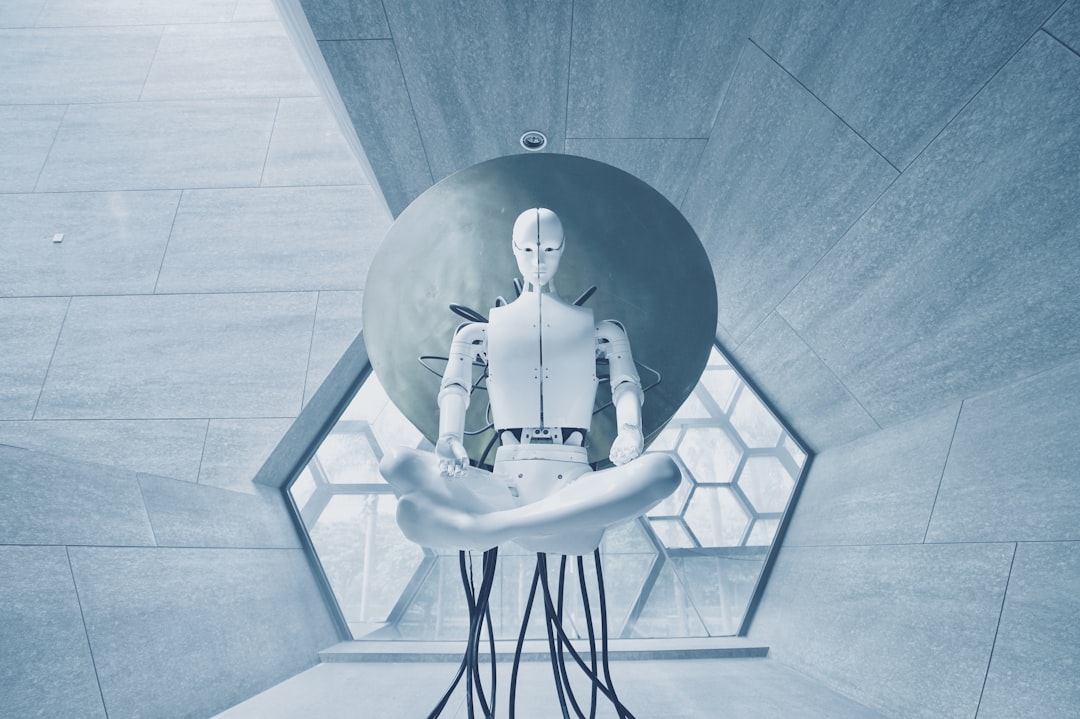Selling Empty Dreams
Elon Musk's Real Product and How to Outsell Him

What does a conman need most? A receptive audience. For years Elon Musk has been selling the most valuable snake oil on Earth: the dream of Utopia. Or the dream of humanity expanding beyond the confines of Earth and settling on Mars. Or the dream of a green future with electric vehicles. Or the dream of uploading our minds on computers and living forever. Or… or……
All of us want something to believe in, some purpose, something to care about, and in a time when so many people struggle to find anything sufficiently worthwhile to fill these fundamental human motivations it’s inevitable that people will emerge who sell empty and dangerous substitutes. And what Musk ultimately sells is a dream. Much like most dreams, what Musk is selling seems to jump around disjointedly without logical connection between one track and the next. And the reason for that is his own awareness that he’s not selling any particular dream, he’s just selling faith and hope. When so many people are nihilistic, are convinced that things are not headed in the right direction, hope for a better future becomes immensely valuable. And he sells it relentlessly. Elon Musk has “invented” ten different dreams to sell you, and delivered on precisely none of them. Yet he’s somehow convinced legions of adoring worshippers that he has the answer. To which question? All of them.
But according to a recent article from Vox many of his fans, and more specifically folks who saw him as a sort of spiritual and philosophical leader, have become disillusioned. They explain how the more he comments publicly, the more they see what he truly thinks, and the more he becomes overtly political, the more they believe he’s not someone to be emulated. And, many have started to think he might not be able to deliver on his promises. Reading the article I was particularly struck by a young 19 year-old man from India saying, "I so badly wanted to believe he was the guy who would change the course of humanity and would take us, as a civilization, to new heights.” This admirer has become just as disillusioned as the rest, particularly after he saw how Musk was full of empty promises like his promise in March 2020 that Tesla would make ventilators for hospitals, another promise he utterly failed to deliver on. Towards the end of the article the 19 year-old concludes, “He’s just an expert at media and knows how people’s psychology works.”
Unfortunately, there’s a lot of truth to this final point. Musk has used Twitter, media more broadly, and the illusion of access to his inner thoughts to cultivate a cult of personality in a way that no other billionaire, short of perhaps Donald Trump if his net worth is to be believed, has done. In an economic system where the value of a company rests on its believed value as much as or more than its utility these skills are immensely valuable. Especially in the tech era, where we see the explosion of numerous companies whose perceived value or projected future value far outpaces companys’ profits and assets, Musk’s ability to whip up faith in Tesla or SpaceX or Twitter is the basis of much of his wealth. In this light his intentional cultivation of fantasies about Mars and eternal life make more sense. Tying his companies to myths about the future of humanity has led folks to invest disproportionate amounts in companies that produce mediocre cars, for example. And as his reputation has fallen in many circles over the past six months, aka over the duration of his Twitter saga, Tesla has lost of 50% of its value and Musk has personally lost $100 billion in net worth. Much like the skeptics in the article mentioned above, investors have apparently lost faith in Elon as he runs his mouth in the most public possible way.

And yet, many acolytes remain. As is increasingly clear from the billionaire’s Twitter usage, a lot of those that remain are right-wing. A lot are young, right-wing men. A lot are of the generation that too often has been radicalized online, and rather than shying away from this Musk is leaning into it, spending a good chunk of his time talking with fascist propagandists and others in front of millions of people. As George Jackson wrote, “[fascism] developed from nation to nation out of differing levels of traditionalist capitalism’s dilapidation.” In other words, as capitalism declines — like we’re currently seeing in the U.S. — as it struggles with the limits of its ability to exploit, and as it struggle with the increasing consciousness of workers, fascism rises. Rather than give in to the pressure applied by socialists, by workers seeking better conditions or more control, capitalists prefer to opt for violence. They support fascist movements that pose as outsiders while really supporting big business and scapegoat the vulnerable, blaming them for society’s problems while concealing the fact that capitalism and billionaires are in fact to blame for most of our ills.
A billionaire embracing fascists would be a frightening scenario at any time and place, but seeing the world’s richest man send his little laughing emojis to the specific right-wing propagandists who encouraged violence against queer folks, drag queens, and the queer community in general, and then doubled down after the Club Q massacre, is particularly horrifying given his ownership of this massive communications platform in the digital age. These are people who just days after the mass shooting in Colorado Springs are justifying it and stoking violence once again, and Elon Musk is right there cozying up to them.
So what do we do? On the one hand, as Jackson says, “fascism can only be countered with deliberate, conscious, and forceful organizing.” And I believe organizing is utterly necessary to confront and defeat those who encourage masses of people to shoot up gay clubs, drag shows, and queer people. I also think militant and thoughtful and forceful organizing is necessary to topple a system where someone like Musk can have billions of dollars while others go hungry. But, I think we have to consider other dimensions that might fall outside the realm of organizing as we typically see it.
Specifically I think we have to consider the realm of the spirit. If you’ve read my earlier pieces you know I’m upset that much of the left, particular the white left in the U.S. and Europe, ceded religion to the right. And, you know I think that in this moment where so many people are looking for existential answers we on the left are still not well positioned to offer what they seek. Thankfully, we’re better positioned on the material questions in a society where people can’t get healthcare or can’t afford the healthcare they have or can’t pay rent. We can provide an important answer to many of these problems, which is to join a union or a community organization and build a mass movement. And I hope folks reading this do that, or have already done that. But there’s more. People are looking for more. People are looking for connection both with their neighbors, which we might be able to help provide, and to a sense of meaning and purpose in life, which is a slightly harder task that we may not be prepared for.
I don’t have the answer for how we can do a better job contesting the existential. Great organizations like the Poor People’s Campaign are calling for a moral revival, and I think they’re taking us in the right direction. Reverends William Barber and Liz Theoharis do great work, and produce rhetoric that I believe pulls people in a way and in a place that many are unfamiliar with accessing. Specifically many people are not used to the powerful intersection of religious conviction coming from the left, rather than from the far-right or the center. When you hear Reverend Barber speak, and preach, and words come out like, “Do justice. Love mercy. Walk humbly before your God,” and they’re spoken in the context of fighting for a fairer, better, more just world, it moves something within you. It opens up a place for hope, even for this Jew who grew up far from any church. And yet I still believe we can think bigger.

I think there’s a generation for whom organized religion simply won’t cut it. Their world, in many ways my world, has left much of organized religion behind. This won’t apply to everyone, and that’s okay, but for the sake of millions of people around the world we need to think of something new. We need to be able to contest the ground upon which a conman like Elon Musk can convince millions that he is the one who holds the keys to the future. So while I don’t have the answer, I have at least one guiding star that I can offer.
In 1993 Octavia Butler published Parable of the Sower. This work of dystopian fiction begins in the year 2024, in Los Angeles. In it the country and the world are simultaneously very different and not too far from what we see today. Society is further along in its collapse, company towns are back, and walled neighborhoods proliferate with roving bands living in the no-mans-lands in between. The way out that Butler offers, through her protagonist Lauren Olamina, is called Earthseed. Earthseed is a new theology. In interviews Butler explained that she combed through many of the world’s religious and spiritual traditions, taking what she liked and leaving the rest. The result is a novel sort of faith whose cornerstone is the idea that “God is Change.”
My next several pieces will most likely be about Earthseed, but for now suffice it to say there are innovative ways to combat people like Elon who sell us hollow dreams. We can also fight with truth telling and debunking, and we must organize, but someone has to tell counter-myths to the lies spun by the world’s richest man about a future on Mars. Someone has to sell a true future, a future where we live on a green Earth, not an Earth stripped of life or a distant red planet. Someone needs to sell the idea, for free, that people can build loving community and foster connection with each other and with whatever it is we hold sacred. Octavia Butler gave us a hint, a possibility, a direction. But we have to go further, and we have to take it out into the world, into that marketplace of ideas the right loves to talk about but is afraid to actually enter. We have to crush fascism, which includes crushing the fake fascist futures of indentured servitude in space, and in that struggle one of our tools can and should be a better vision of a beautiful world, complete with a sacred connection to one another, and to the infinite.


You write beautifully! What musk is selling isnt fantasy at all. He, along with a few other tech giants, as well as a few autocrats, want to end democracy. Their "dream" is to crash the US financial system & replace it with crypto that they will hold the majority of, but that is sold as independent. It turns out Putin, China, & the Saudi's would like the order of who has the most power to change so that it is no longer the US in the lead. They want a multi-polar set-up where the most powerful is no longer 1 nation, but several....all lead by autocrats/dictatorships. I know it sounds extremely conspiratorial, and I suppose it is until such time some part of it at least would happen. Keep your eye on the gop & the debt ceiling next month. A journalist & disinformation researcher by the name of Dave Troy (you can read much about this on his twitter page), has been following this for a while now.
If I could 'like' this thoughtful post a hundred times I would. You've articulated the essence of what so many feel & desire, that being the need for community guided by principals of integrity, empathy & shared resources. There was a time when we saw more of this, however imperfect. We saw the pandemic drive more folks into isolation, further fractioning our sense of belonging, as well as our trust in the politically-challenged institutions meant to protect us. We need to use our platforms to elevate altruistic leaders so people can join together in manifesting a better world. Realistically, that's a tough battle. Calling out our need for spirit is a call for humanity. We may not be inclined to name that spirit 'God' given how tainted that concept has become through the extremist/authoritarian Christian factions hell-bent on controlling the lives of just about everyone. Perhaps Bob Marley was on to something when he sang about "One Love".